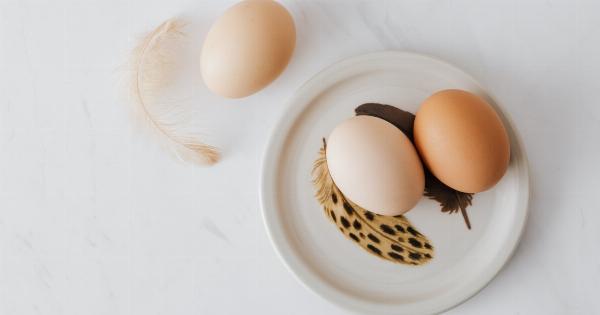Cholesterol is a waxy substance found in your blood. It plays a vital role in the production of cell membranes, certain hormones, and vitamin D.
However, having high levels of LDL (bad) cholesterol can increase your risk of heart disease, stroke, and other cardiovascular problems.
On the other hand, HDL (good) cholesterol helps remove LDL cholesterol from your arteries and carries it back to the liver for excretion. Increasing your HDL cholesterol levels can have a positive impact on your heart health.
In this ultimate guide, you will learn various strategies to raise your good cholesterol naturally.
1. Consume Healthy Fats
Contrary to what many believe, not all fats are bad for your health. Consuming healthy fats can actually help increase HDL levels.
Foods rich in monounsaturated and polyunsaturated fats, such as avocados, olive oil, nuts, and seeds, can effectively raise your good cholesterol levels. Including these foods in your diet can make a significant difference.
2. Increase Your Physical Activity
Regular exercise is not only beneficial for your overall health but also plays a crucial role in improving your cholesterol profile. Engaging in aerobic exercises like jogging, swimming, cycling, or brisk walking can increase HDL cholesterol levels.
Aim for at least 150 minutes of moderate-intensity exercise per week for optimal results.
3. Quit Smoking
Smoking is not only harmful to your lungs but also has a negative impact on cholesterol levels. Smoking lowers your HDL cholesterol and damages the lining of your blood vessels, increasing the risk of atherosclerosis.
Quitting smoking is essential for increasing your good cholesterol and improving your heart health.
4. Avoid Trans Fats
Trans fats are artificially created fats found in processed and fried foods. These fats not only lower your HDL cholesterol levels but also increase LDL cholesterol and triglycerides.
Avoiding foods containing trans fats, such as margarine, fried foods, and commercially baked goods, is important for raising your good cholesterol levels.
5. Consume Omega-3 Fatty Acids
Omega-3 fatty acids have numerous health benefits, including raising HDL cholesterol levels. Fatty fish like salmon, mackerel, and sardines are excellent sources of omega-3s.
If you’re not a fan of fish, you can opt for fish oil supplements to increase your intake of these beneficial fatty acids.
6. Consume Soluble Fiber
Soluble fiber not only aids in digestion but also helps improve your cholesterol profile. It binds to cholesterol particles and removes them from the body, thereby increasing HDL levels.
Foods rich in soluble fiber include oats, barley, legumes, and fruits like apples and oranges. Adding these fiber-rich foods to your diet can help raise your good cholesterol.
7. Limit Alcohol Consumption
While moderate alcohol consumption has been associated with increased HDL cholesterol levels, excessive drinking can have several negative effects on your health, including decreased HDL levels.
It is important to limit alcohol intake to moderate levels, which means one drink per day for women and up to two drinks per day for men.
8. Lose Excess Weight
If you are overweight or obese, losing weight can significantly improve your cholesterol profile. Shedding excess pounds not only lowers LDL cholesterol but also increases HDL cholesterol.
Focus on adopting a healthy eating plan and incorporating regular exercise to achieve sustainable weight loss and optimize your good cholesterol levels.
9. Consume Antioxidant-Rich Foods
Antioxidants have been shown to have a positive impact on cholesterol levels. Foods rich in antioxidants, such as berries, dark chocolate, green leafy vegetables, and nuts, can help increase your HDL cholesterol.
Including these foods in your diet can contribute to a healthier heart.
10. Manage Stress Levels
Chronic stress can have detrimental effects on your overall health, including your cholesterol levels. High-stress levels have been linked to reduced HDL cholesterol levels.
Implement stress management techniques like meditation, yoga, or deep breathing exercises to lower stress and improve your good cholesterol levels.































